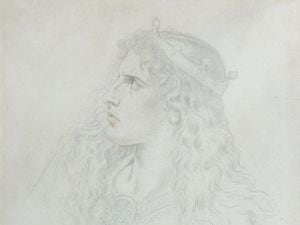Ministers protect Lady Chatterley’s Lover copy used by judge in obscenity trial
The trial over the DH Lawrence novel became a sensation.

Ministers have blocked the export of the copy of Lady Chatterley’s Lover used by the judge in the obscenity trial over DH Lawrence’s controversial novel.
The vivid descriptions of sex in the book led to it becoming the subject of an obscenity trial which became a sensation in 1960, and a watershed moment for censorship and sexual attitudes in the UK.
Lawrence’s 1928 work was released in France and Italy two years before his death, but was not openly published in the UK for fear of prosecution over its explicit content.
Sir Laurence Byrne presided over the trial and his copy of the provocative novel – annotated by both the judge and his wife – has been sold.
Ministers have moved to block its export from the UK, and protect a central piece of British cultural history which experts have called a “witness” to a moment of dramatic societal change.
The victory of publisher Penguin Books in the public prosecution led to Lady Chatterley’s Lover selling three million copies, and is thought to have been a liberalising moment on the cusp of the Swinging Sixties.
Arts minister Michael Ellis said: “The trial of Lady Chatterley’s Lover captured the public attention in 1960.
“It was a watershed moment in cultural history, when Victorian ideals were overtaken by a more modern attitude.

“I hope that a buyer can be found to keep this important part of our nation’s history in the UK.”
The book – worth £56,250 – contains two pages of notes, annotations, a list of page numbers, and short summaries of various parts of the novel.
Much of the writing has been done by the wife of the judge, Dorothy Byrne, with other notes made by Sir Laurence himself.
She was allowed to sit with her husband on the bench as witnesses were called in a case, brought under the Obscene Publications Act, which aimed to find balance between literary merit and pornography.
The Bishop of Woolwich spoke against the book, which was accused of being obscene, with an English literature professor speaking in the novel’s defence. A jury returned a verdict of not guilty after a short deliberation.
Experts on The Reviewing Committee on the Export of Works of Art and Objects of Cultural Interest (RCEWA), recommended that the artwork be kept in the UK.

Chairman of the RCEWA, Sir Hayden Phillips, said: “The prosecution of Penguin Books for publishing Lady Chatterley’s Lover was one of the most important criminal trials of the 20th century.
“Judge Byrne’s copy of the novel, annotated by him and his wife, may be the last surviving contemporary ‘witness’ who took part in the proceedings.
Picture the scene: the High Court Judge presiding in his red robes, his wife beside him on the Bench (as was allowed in those days) as a succession of singular and distinguished witnesses for the Defence were cross examined day by day.
“I was 17 at the time and studying a DH Lawrence as a set text for A-levels – it was not Lady Chatterley’s Lover, but at least I could follow the riveting course of the trial in the daily papers.
“It would be more than sad, it would be a misfortune, if this last surviving ‘witness’ left our shores.”
The decision on the export licence application for the book will be deferred until August 9, and may be extended if a serious intention to raise funds to purchase the item is made at the recommended price of £56,250.





